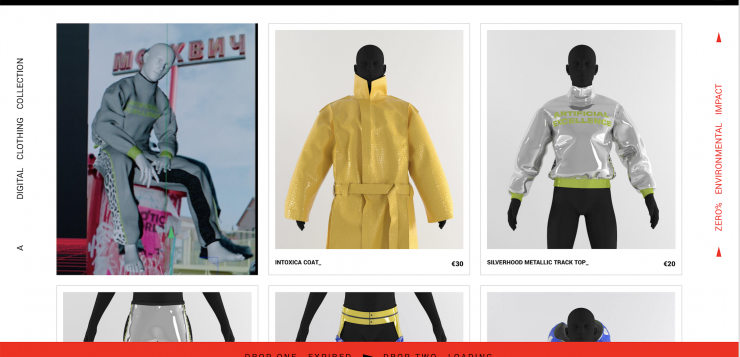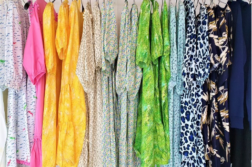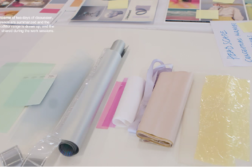By Olivia More, Ha Le, Karita Kivilinna, and Julia Krüger.
In February, we received a visit from Elizabeth Allen, the lecturer for fashion marketing, and Claire Barker Phillips, the course leader for fashion design, from Falmouth University in England. Their visit focused on the importance of sustainability in fashion, and over the course of their two day visit they challenged us to come up with our own future business idea which would put sustainability issues at the forefront.
To begin with, we were educated on the negative impact the fashion industry has on the environment – both Elizabeth and Claire were interested to see how much knowledge we already had of these issues. They invited us to find out how much damage our own wardrobes inflict on the planet by visiting thredup.com where we could use a fashion footprint calculator. We then discussed the ways in which the fashion industry could become more sustainable.
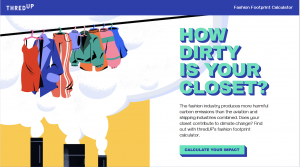
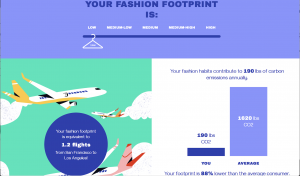
Renting
We are in the age of borrowing – Airbnb, Uber – so why not rent our clothes? Many believe renting is the way forward as it becomes more difficult and more expensive to own your own items such as property, mobile phones, and cars. Some brands have begun clothes rental services, where you can rent clothes for the day, week, month etc, and then return them back to the brand to be rented to the next customer. At the moment, these services are mostly popular with occasion wear items as they are generally more expensive and more likely to only be worn once by customers, but this is a service that could be seen as expanding into all clothing markets very soon.

Resale
Clothing resale had been a greatly expanding market in recent years. Online companies such as Depop and eBay are leading the way in affordable resale. There is also a great market for designer resale, such as companies like Vestiaire Collection and The Real Real.
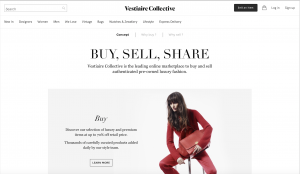
Digital Clothing
Some companies have started selling digital clothing – clothing in which the company will edit onto a photo of you, to make it appear as if you are wearing the clothing, but you never actually have a physical piece of clothing. While this is a sustainable method, I see it as painting quite a dark future – it creates the idea that your online presence matters more than your physical presence. Digital clothing is maybe good for influencers or one-off purchases, but I cannot see it taking off into the mainstream, as we still need physical clothes to wear day-to-day.
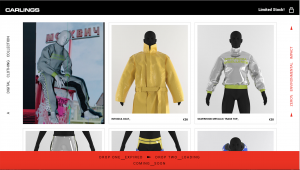
Both of our speakers Elizabeth and Claire admitted they were also rather sceptical of the concept of digital clothing, and said they found it rather sad in which there could be a future where you prioritise your online self. The idea of digital versus physical is very interesting topic inside the fashion industry. CGI models first began their careers on Instagram but can now be seen in major fashion and beauty campaigns such as Balmain and Fenty Beauty. These campaigns faced a lot of controversy as much of the public were not sure how to feel about these ultra-realistic CGI models.


We were then challenged by Elizabeth and Claire to attempt to create a business model for a fashion company that keeps sustainability in mind. The class was split into two teams as we tried to come up with a way in which to create a successful fashion brand that does as little damage to the planet as possible. We had to consider issues such as fabrics, packaging, factory location and manufacturing. In the end, both teams chose to create a business model that focuses on selling vintage clothing, or upcycling used clothing. This was a very challenging task as it made us realise how difficult it is nowadays to be truly sustainable.
Elizabeth and Claire ended their discussion about sustainability on a positive note. Issues such as climate change are getting more attention in the media, there has been a large increase of education on how these issues will affect us, and the publics attitudes are improving and growing more understanding every day. It is clear 2020 will be a year where positive change will take place in the world of sustainability.

